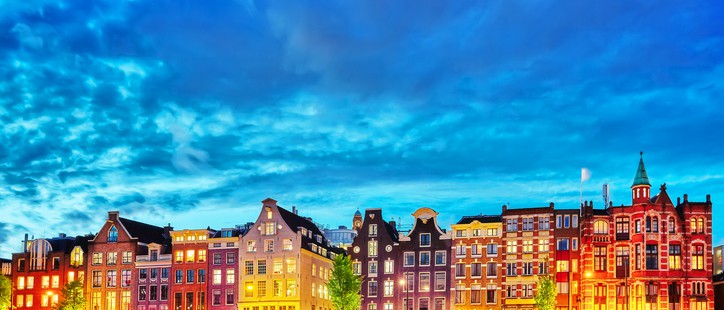Our Opinion: 2017
Europe successfully shrugs off political risk

Next week, Geert Wilders’ far-right Party for Freedom (PVV), is set to become the biggest party in the Netherlands, increasing political risk in an already un-settled continent.
The party is running on an explicitly Islamophobic ticket, saying it will close all mosquesand ban sales of the Koran. Other policies include a ban on all asylum seekers and a referendum on a Dutch exit from the European Union. Wilders’ views, which include regularly describing Moroccan immigrants as “scum”, explain why the 53-year-old has been under 24/7 state protection for the past 13 years.
Wilders has cleverly managed to build a successful movement by exploiting the internet and social media to communicate with voters without the filter of journalists.
Whether his party wins the most votes or forms a government doesn’t matter. Wilders has already succeeded in one of his main ambitions, which is to push to the right the politics of a socially liberal country with a centuries-long tradition of promoting religious tolerance and welcoming immigrants. Wilders argues that it is precisely this tolerance that is now being “threatened by Islam’s ‘totalitarian ideology’”.
The reason his anti-Islam, Eurosceptic rhetoric is resonatin” with Dutch voters now is due to the perceived migrant crisis, the terror threats and ongoing eurozone woes. Although an electoral victory by Wilders would be another blow for Europe’s liberal order, he won’t become prime minister.
Although his party is on track to win 29 of the 76 needed to form a coalition government, none of the other Dutch parties will join forces with the PVV. Rem Korteweg at the Centre for European Reform recently pointed out that the result “is going to be a political mess. Wilders will claim that he has the will of the people and, since the ruling coalition is likely to include no fewer than five parties, the resulting instability could cause it to rapidly fall apart, “sparking fresh elections”.
With this on the horizon, together with worries over French elections, you’d think investors would be running a mile from European stocks. Yet in the week to 22 February, European equity funds attracted the biggest weekly inflows for more than a year. The pan-European FTSE Eurofirst 300 index has climbed to a two-year high, building on a rally that began late last year.
This seems to be based on the belief the fact that, even if the populists do win, they can’t just click their fingers and dissolve the European integration project. In the Netherlands, a referendum on EU membership requires a change in the constitution, which in turn necessitates a two-thirds majority in parliament. Similarly, in France, Marine le Pen will struggle to muster the parliamentary majority needed to secure a plebiscite and impose legislation. The German anti-immigrant and anti-euro grouping AfD will almost certainly enter the federal parliament in this autumn’s elections, but is unlikely to have much influence. There are significant political barriers against further referenda in the core European countries.
In the meantime, the post-crisis economic upturn is finally gathering some steam. Unemployment has continued to fall; business activity surveys have hit six-year highs; and in January inflation climbed across all member states for the first time in four years. So the prospect of a deflationary slump has receded.
The Eurozone is also far more exposed to global trade than the US or Japan. Therefore, the fact that global growth estimates have been upgraded of late bodes well for the earnings of the continent’s multinational blue chips. Both earnings and stock prices have lagged behind the US in recent years, and have lots of catching up to do; valuations are also far more reasonable.
Given all this, investors appear to have decided that the risk-reward outlook for Europe is actually fairly appealing.
9th March 2017
